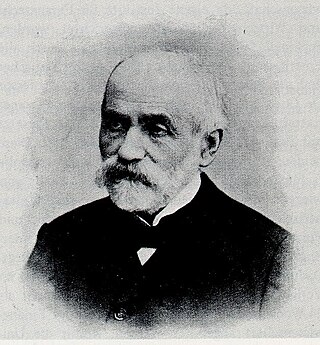
Ethnocentrism which is in social science and it is in anthropology—as well as in colloquial English discourse—means to apply one's own culture or ethnicity as a frame of reference to judge other cultures, practices, behaviors, beliefs, and people, instead of using the standards of the particular culture involved. Since this judgment is often negative, some people also use the term to refer to the belief that one's culture is superior to, or more correct or normal than, all others—especially regarding the distinctions that define each ethnicity's cultural identity, such as language, behavior, customs, and religion. In common usage, it can also simply mean any culturally biased judgment. For example, ethnocentrism can be seen in the common portrayals of the Global South and the Global North.

The White Australia policy was a set of racial policies that aimed to forbid people of non-European ethnic origins – especially Asians and Pacific Islanders – from immigrating to Australia in order to create a "white/British" ideal focused on but not exclusively Anglo-Celtic peoples. Pre-Federation, the Australian colonies passed many anti-Chinese immigration laws mainly using Poll Taxes, with Federation in 1901 came discrimination based on the Dictation Test, which effectively gave power to immigration officials to racially discriminate without mentioning race. The policy also affected immigrants from Germany, Italy, and other European countries, especially in wartime. Governments progressively dismantled such policies between 1949 and 1973, when the Whitlam government removed the last racial elements of Australia's immigration laws.
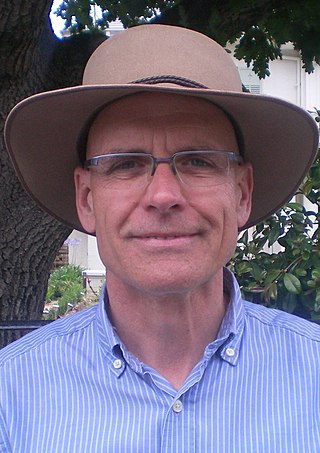
Clive Charles Hamilton AM FRSA is an Australian public intellectual currently serving as Professor of Public Ethics at the Centre for Applied Philosophy and Public Ethics (CAPPE) and the Vice-Chancellor's Chair in Public Ethics at Charles Sturt University. He is a member of the board of the Climate Change Authority of the Australian Government, and is the founder and former executive director of The Australia Institute. He regularly appears in the Australian media and contributes to public policy debates. Hamilton was granted the award of Member of the Order of Australia on 8 June 2009 for "service to public debate and policy development, particularly in the fields of climate change, sustainability and societal trends".

Anti-Chinese sentiment is the fear or dislike of China, Chinese people and/or Chinese culture. In the western world, fear over the increasing economic and military power of China, its technological prowess and cultural reach, as well as international influence, has driven persistent and selectively negative media coverage of China. This is often aided and abetted by policymakers and politicians, whose actions are driven both by prejudice and expedience.

Sir Lewis Carl Davidson Hamilton is a British racing driver who most recently competed in Formula One for Mercedes. Hamilton has won a joint-record seven Formula One World Drivers' Championship titles—tied with Michael Schumacher—and holds the records for most wins (105), pole positions (104), and podium finishes (202), among others.

Stan Grant is an Australian journalist, writer and radio and television presenter, since the 1990s. He has written and spoken on Indigenous issues and his Aboriginal identity. He is a Wiradjuri man.
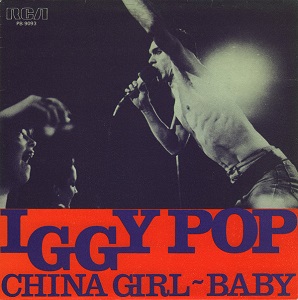
"China Girl" is a song written by Iggy Pop and David Bowie in 1976, and first released by Pop on his debut solo album, The Idiot (1977). Inspired by an affair Pop had with a Vietnamese woman, the lyrics tell a story of unrequited love for the protagonist's Asian girlfriend, realizing by the end that his Western influences are corrupting her. Like the rest of The Idiot, Bowie wrote the music and Pop improvised the lyrics while standing at the microphone. The song was released as a single in May 1977 and failed to chart.

Chinese New Zealanders or Sino-New Zealanders are New Zealanders of Chinese ancestry. The largest subset of Asian New Zealanders, many of the Chinese immigrants came from Mainland China, Hong Kong, Taiwan, or other countries that have large populations of Chinese diaspora. Today's Chinese New Zealand group is also composed of diasporic communities from Indonesia, Malaysia, Cambodia, Vietnam and Singapore. As of 2018, Chinese New Zealanders account for 4.9% of the population of New Zealand, and are the largest Asian ethnic group in New Zealand, accounting for 36.3% of Asian New Zealanders.

"Mandalay" is a poem by Rudyard Kipling, written and published in 1890, and first collected in Barrack-Room Ballads, and Other Verses in 1892. The poem is set in colonial Burma, then part of British India. The protagonist is a Cockney working-class soldier, back in grey, restrictive London, recalling the time he felt free and had a Burmese girlfriend, now unattainably far away.

Limahong, Lim Hong, or Lin Feng, well known as Ah Hong or Lim-A-Hong or Limahon, was a Chinese pirate and warlord who invaded the northern Philippines in 1574. He built up a reputation for his constant raids to ports in Guangdong, Fujian and southern China. He is noted to have twice attempted, and failed, to invade the Spanish city of Manila in 1574.

Consular relations between China and Australia were first established in 1909, and diplomatic relations were established in 1941. Australia continued to recognise the Republic of China (ROC) government after it lost the Chinese Civil War and retreated to Taiwan in 1949, but switched recognition to the People's Republic of China (PRC) on 21 December 1972. Chinese Australians have been a significant minority group in the country since the Qing dynasty.
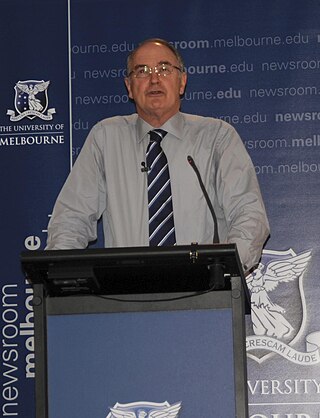
Ross Gregory Garnaut is an Australian economist, currently serving as a vice-chancellor's fellow and professorial fellow of economics at the University of Melbourne. He is the author of numerous publications in scholarly journals on international economics, public finance and economic development, particularly in relation to East Asia and the Southwest Pacific.
Left-wing nationalism or leftist nationalism is a form of nationalism which is based upon national self-determination, popular sovereignty, and left-wing political positions such as social equality. Left-wing nationalism can also include anti-imperialism and national liberation movements. Left-wing nationalism often stands in contrast to right-wing politics and right-wing nationalism.

Fiona Heather Patten is an Australian politician. She was the leader of Reason Australia and was a member of the Victorian Legislative Council between 2014 and 2022, representing the Northern Metropolitan Region, until she lost her seat at the 2022 state election.
Criticism of multiculturalism questions the ideal of the maintenance of distinct ethnic cultures within a country. Multiculturalism is a particular subject of debate in certain European nations that are associated with the idea of a nation state. Critics of multiculturalism may argue against cultural integration of different ethnic and cultural groups to the existing laws and values of the country. Alternatively critics may argue for assimilation of different ethnic and cultural groups to a single national identity.
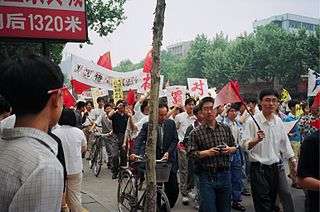
There is a history of anti-Americanism in China, beginning with the general disdain for foreigners in the early 19th century that culminated in the Boxer Rebellion of 1900, which the United States Marine Corps participated with other powers in suppressing. The 1905 Chinese boycott of American goods to protest discrimination against the Chinese living in America had a major negative impact on Chinese attitudes. After the Chinese Civil War, the United States and China fought an undeclared war during the Korean War, in which 148,000 Chinese soldiers died, that left bitter feelings on both sides. Relations warmed up after 1970, but large-scale anti-American sentiments significantly increased since US President Donald Trump launched a trade war against China in the late 2010s.

Hidden Hand: Exposing How the Chinese Communist Party Is Reshaping the World is a 2020 book by Australians Clive Hamilton and Mareike Ohlberg, and is a follow-up of Hamilton's 2018 book Silent Invasion. The book details the claim of "the Chinese Communist Party's global program of influence and subversion, and the threat it poses to democracy".

China's salami slicing is a geopolitical strategy involving a series of small steps allegedly taken by the government of China that would become a larger gain which would have been difficult or unlawful to perform all at once. When discussing this concept, notedly debated in the publications of the Lowy Institute from Australia, some defenders of the concept are Brahma Chellaney, Jasjit Singh, Bipin Rawat or the Observer Research Foundation from India or the United States Institute of Peace, Bonnie S. Glaser or Erik Voeten from the US, while detractors are H. S. Panag from India or Linda Jakobson. Advocates of the term have cited examples such as the territorial disputes in the South China Sea and along the Sino-Indian border.

Stealth War: How China Took Over While America's Elite Slept is a 2019 book by Robert Spalding about the United States' foreign relations with the People's Republic of China (PRC), the influence of the PRC in the United States, and the nature of the geo-political rivalry between the two countries. Spalding argues that the PRC is the greatest rival of the United States, why the country is a rival, strategies the PRC is using to undermine the United States, and policies the United States could implement to counter that rivalry. He also argues that the PRC has been conducting a covert aggressive campaign to undermine and eventually usurp American power since the 1990s. This includes a campaign against American values globally as enshrined in the Atlantic Charter such as support for democratic forms of government and human rights.

Alex W. Joske is a Chinese-Australian author, sinologist, open-source intelligence researcher, and risk consultant who investigates the Chinese Communist Party (CCP), particularly its influence operations. Previously a researcher with the Australian Strategic Policy Institute, his writing has appeared in The New York Times, The Washington Post, and NBC News His first major work influenced legislation in the United States Congress to ban Chinese military (PLA) officials from sensitive U.S. government laboratories. He was publicly banned from entering China by the Chinese government in 2020 due to his work. In 2022, he released his first book, Spies and Lies, about the clandestine operations of the Ministry of State Security and United Front Work Department.


















